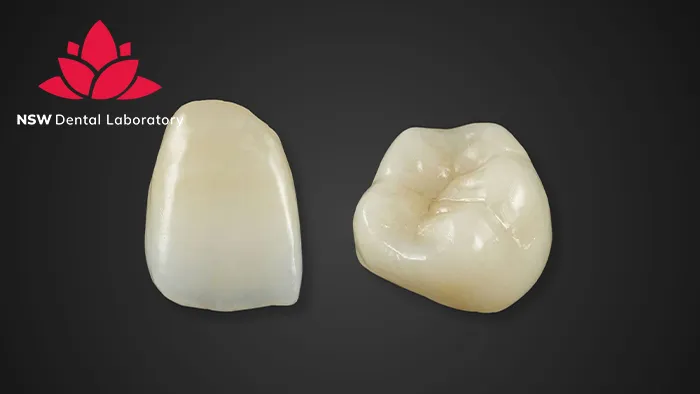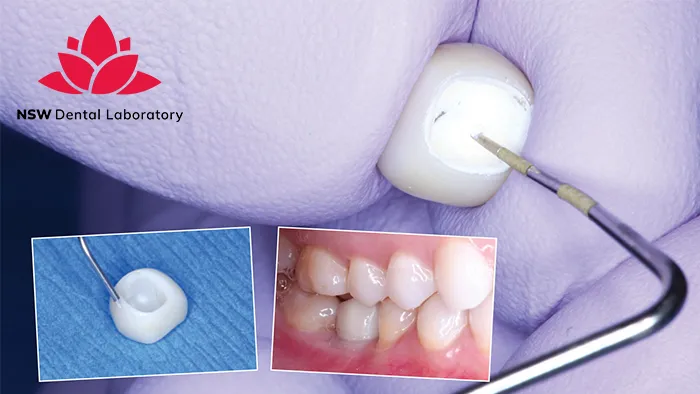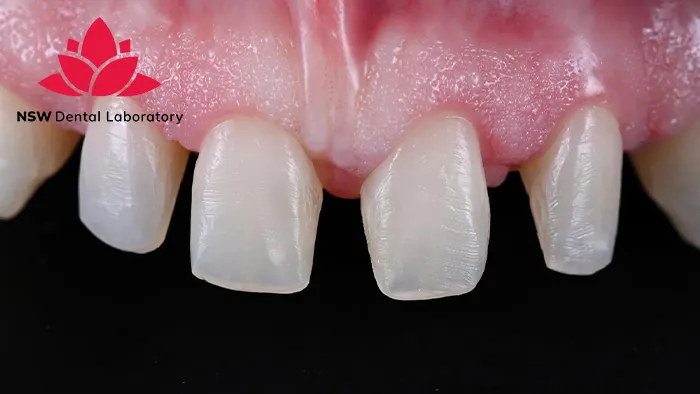Metal Dental Crowns: A Comprehensive Guide for Dentists and Patients
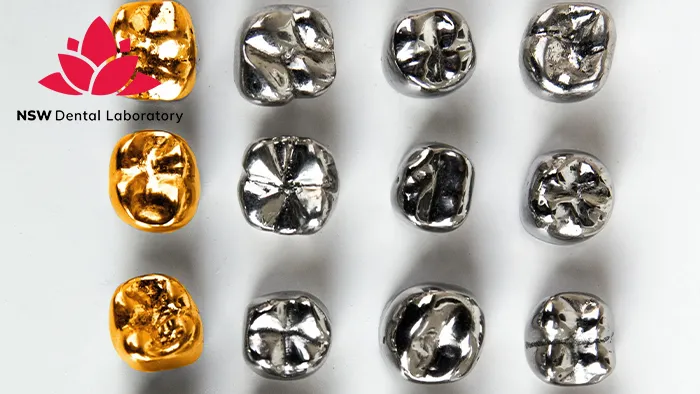
Metal dental crowns have been around for decades and were once a popular choice for dental restorations. While the advent and development of new materials like ceramic and zirconia have made them less favored in recent years, metal crowns still maintain a significant position due to their exceptional durability and affordability. Despite having been in use for centuries, they remain a reliable option in certain cases.
In this blog, we will provide useful insights into Metal Dental Crowns to help both dentists and patients make informed decisions during dental procedures and achieve the desired aesthetic and functional outcomes. This comprehensive guide aims to facilitate a better understanding of Metal Dental Crowns and their applications in modern dentistry.
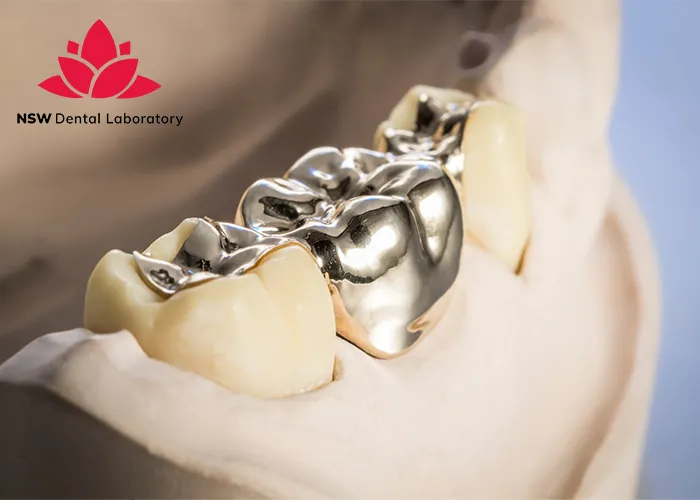
What Is Metal Dental Crowns?
A Metal Dental Crown is a tooth cap or crown made of metal that fully covers or surrounds a tooth. Metal crowns are the most durable type of dental crown and do not cause wear to opposing teeth. They can be fabricated from various metals, including platinum, gold, copper, and base metal alloys such as cobalt-chromium and nickel-chromium. Most metal crowns are a mixture of multiple metals and primarily consist of base metal alloys.
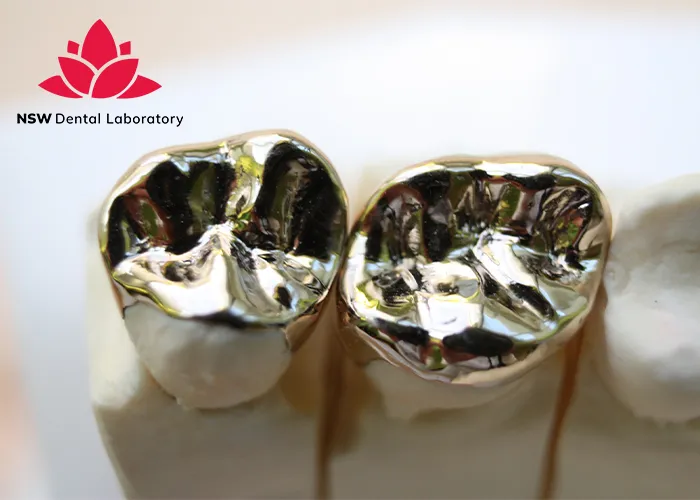
In most cases, metal crowns are used to restore molars due to their strength and location, which does not require maximum aesthetic appeal. However, for individuals with metal allergies or those who avoid metal crowns due to their appearance, metal dental crowns are not a suitable option.
Common Metals Used for Metal Dental Crowns
Most crowns will not be 100 percent of one type of metal. Many pure metals lack the necessary physical properties to make usable crowns. For example, some of the more noble metals used are too soft. While this makes shaping a dental crown easier, it lacks the necessary structure to be effective.
To give it more structure and reduce the total cost, dentists will mix these metals with sturdier materials to create alloys. So a crown that appears to be silver is probably a mix of silver and harder metals like titanium, and gold caps for teeth may only have a small amount of actual gold in them.
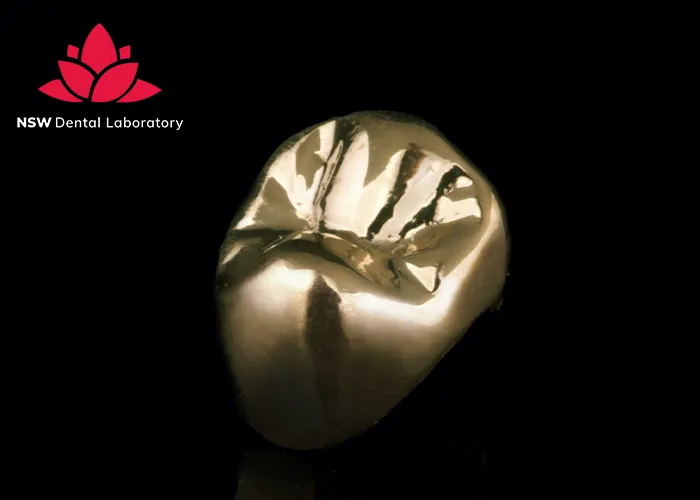
Overall, the main and most commonly used types of metals for metal dental crowns include:
- Gold (Au): These crowns are typically crafted from precious alloys, a mixture of gold, copper, and other metals. They are known for their high durability, excellent biocompatibility, and proven resistance to corrosion over time.
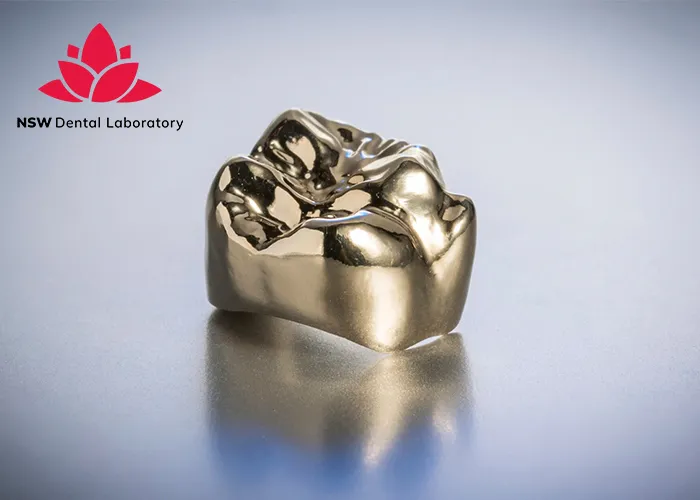
- Palladium (Pd): Lightweight with excellent durability and wear resistance, these alloys have a brighter metallic color, providing a more natural appearance that blends harmoniously with adjacent teeth.
- Platinum (Pt): Platinum crowns exhibit exceptional corrosion resistance, which contributes to the overall durability and reliability of platinum crowns in dental restorations.
- Cobalt-Chromium (Co-Cr): Cobalt-chromium crowns are renowned for their exceptional strength and hardness. They can withstand significant chewing forces without fracturing or deforming.
- Titanium (Ti): Titanium crowns are renowned for their excellent biocompatibility and corrosion resistance. They are also lightweight and strong, offering durability and long-lasting performance in dental restorations.
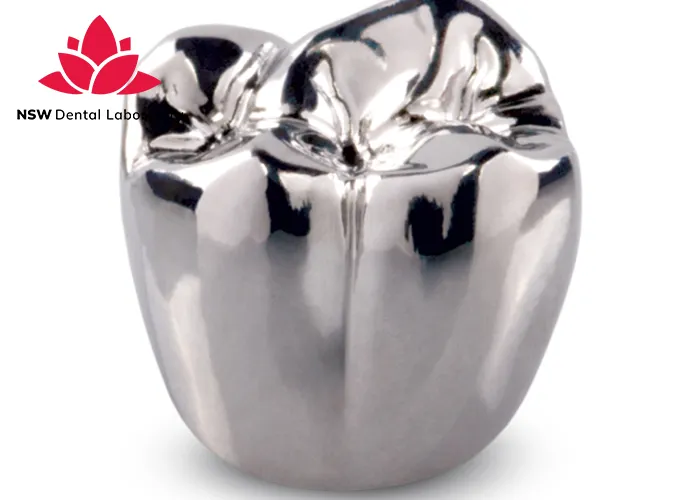
Advantages And Disadvantages Of Metal Dental Crowns
Advantages
- Durability: Metal Dental Crowns typically have higher flexural strength compared to ceramic alternatives and exhibit exceptional resilience against mechanical stress. They are less prone to wear over time and do not cause abrasion to opposing teeth. Metal crowns can withstand biting and grinding forces without cracking or chipping, making them particularly suitable for restoring posterior teeth, especially in cases of severe bruxism.
- Biocompatibility: Precious metals like gold or palladium exhibit high biocompatibility, ensuring favorable interaction with oral tissues and minimizing the risk of allergic reactions or adverse responses.
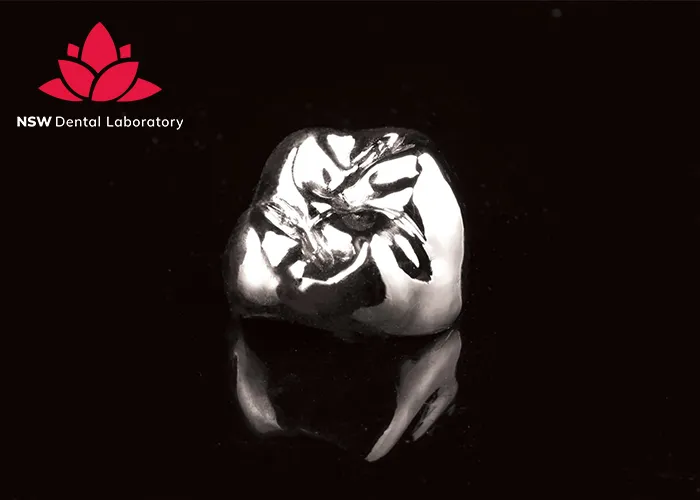
- Cost-Effectiveness: Metal Dental Crowns are often a more cost-effective alternative to other crown materials, making them a good choice for patients seeking durable and reliable dental restorations on a limited budget.
- Minimal Tooth Preparation: Metal Dental Crowns typically require less removal of tooth structure during the preparation phase compared to alternative crown types like ceramic crowns. This helps preserve a greater portion of the natural tooth structure.
Disadvantages
- Aesthetics: The most noticeable drawback of metal dental crowns is their poor aesthetics. The metallic color makes them less harmonious with natural teeth, which is why metal dental crowns are generally not recommended for front teeth.
- Allergy or irritation: Metals such as nickel or chromium can cause reactions and allergies in patients who are sensitive to metals.
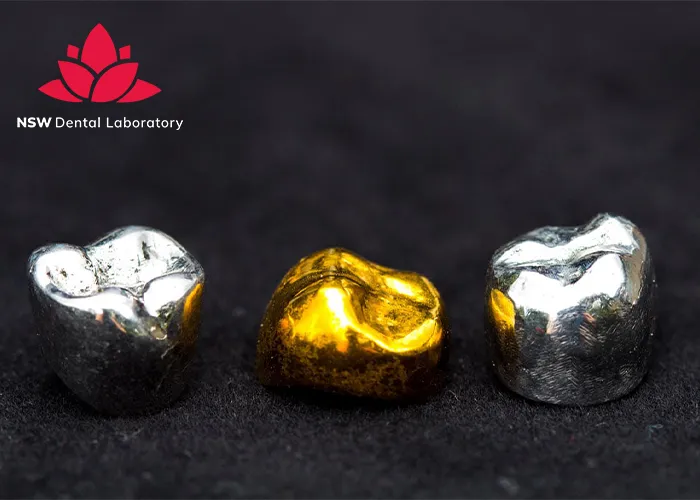
Process of Milling Metal Dental Crown At NSW Dental Lab
The process begins with receiving either a digital impression or a traditional impression scan from the dentist. Using computer-aided design (CAD) software, our technicians design the metal dental crown based on this digital impression to ensure a precise fit and optimal function.
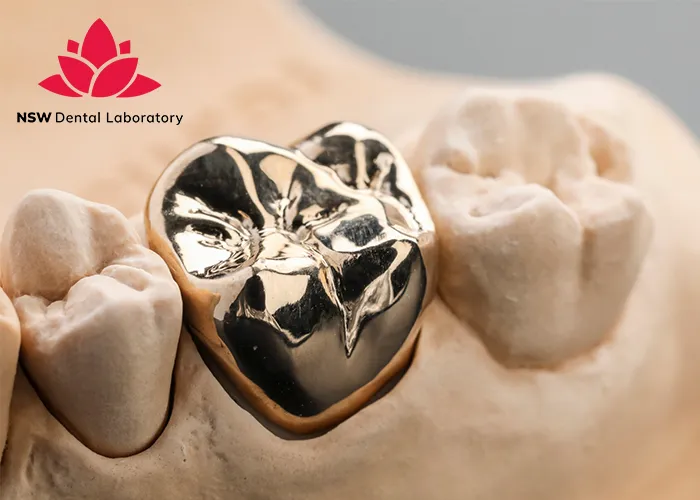
Next, with computer-aided manufacturing (CAM) technology, the technicians proceed with milling the metal crown. A solid metal alloy block is selected and placed into the milling machine, which then uses precise milling tools to shape the crown according to the digital design.
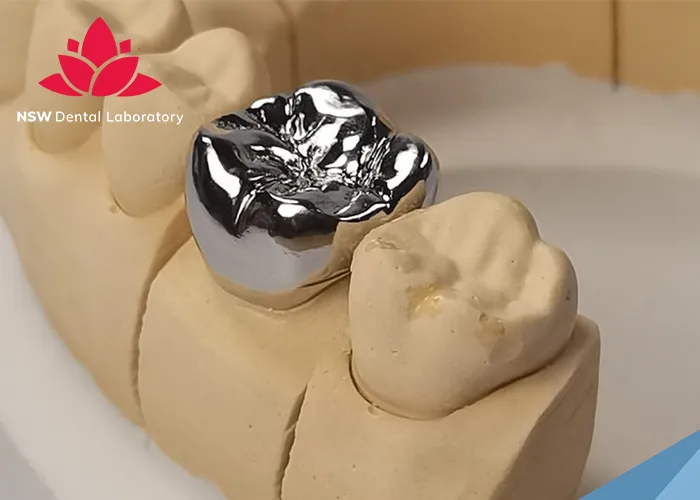
After milling, the crown is polished and adjusted to ensure a perfect fit and finish. Sharp edges or imperfections are smoothed to ensure the best possible metal dental crown restoration.
With years of experience in manufacturing and crafting dental restorations in general, and metal dental crowns in particular, the skilled technicians at NSW Dental Lab are highly qualified and committed to delivering high-quality metal dental crowns that meet the needs of both dentists and patients. If you have any questions regarding metal dental crowns or other dental restorations, please feel free to contact our friendly team for prompt assistance.

